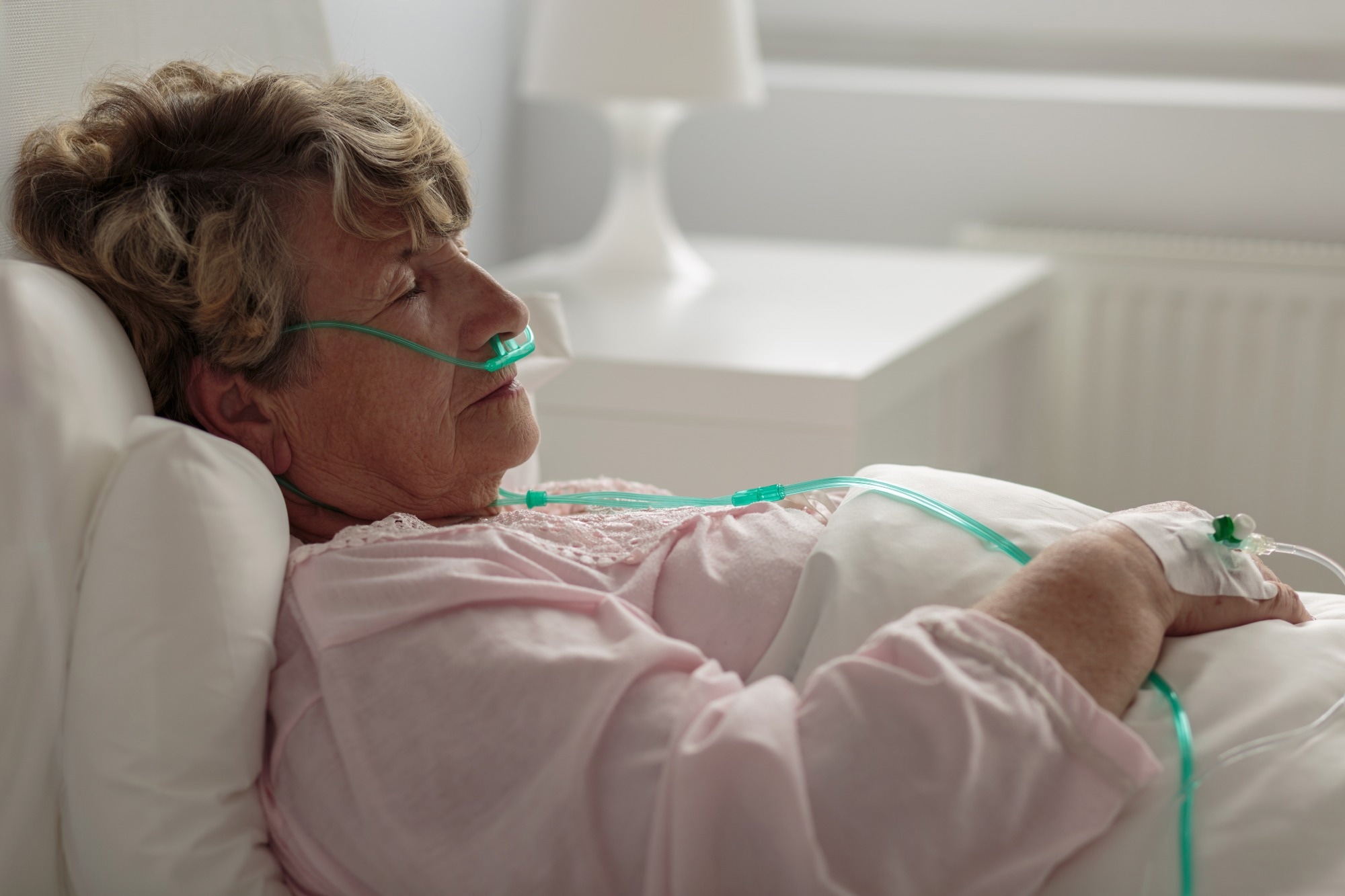A major UK study has discovered that the disturbed sleep patterns in patients hospitalized with COVID-19 were likely to be a driver of breathlessness.
The study of patients in 38 institutions across the UK was led by the University of Manchester and Leicester, presented at the European Congress of Clinical Microbiology & Infectious Diseases (Copenhagen, 15-18 April), and published in The Lancet Respiratory Medicine.
 Study: Effects of sleep disturbance on dyspnoea and impaired lung function following hospital admission due to COVID-19 in the UK: a prospective multicentre cohort study. Image Credit / Ground Picture / Shutterstock
Study: Effects of sleep disturbance on dyspnoea and impaired lung function following hospital admission due to COVID-19 in the UK: a prospective multicentre cohort study. Image Credit / Ground Picture / Shutterstock
The team discovered that 62% of participants who had been admitted to hospital for COVID-19 had sleep disruption, which was likely to persist for at least 12 months and highlighted for the first time the association between two post-COVID condition symptoms: breathlessness and sleep disruption.
On average, participants who had been hospitalized with COVID-19 slept for over an hour longer, but their sleep patterns were less regular (19% decrease on the sleep regularity scale) than matched participants who were hospitalized due to any cause.
The study researchers also found that participants with sleep disturbance were more likely to have anxiety and muscle weakness, common post-COVID-19 condition symptoms.
Statistical analysis identified that sleep disruption was likely to drive breathlessness directly but that reduced muscle function and increased anxiety, both recognized causes of breathlessness, could partially mediate the association between sleep disturbance and breathlessness.
The study authors speculate that targeting sleep disruption by reducing anxiety and improving muscle strength in these patients could alleviate breathlessness, but further investigation is needed.
The study used extensive data from the hospitals participating in the PHOSP-COVID study between March 2020 and October 2021.
PHOSP-COVID is a consortium from across the UK researching long-term health outcomes for patients hospitalized with COVID-19.
The study was funded by the UK Research and Innovation and others.
Sleep quality was assessed using subjective measures self-reported by 638 patients to researchers.
It was also measured objectively in another 729 patients who wore devices similar to smartwatches that measured night-time activity levels.
Both measures consistently revealed a higher prevalence of sleep disturbance in people hospitalised with COVID-19 compared with matched controls from the UK Biobank who had been hospitalized for any cause.
The impact on sleep from hospitalization due to COVID-19 was irrespective of critical care admission.
One of the authors Dr. John Blaikley, a clinical scientist from The University of Manchester and respiratory doctor, said: "This study has discovered that sleep disturbance could be an important driver of post-COVID-19 breathlessness – or dyspnoea - because of its associations with reduced muscle function and anxiety.
"If this is the case, then interventions targeting poor sleep quality might be used to manage symptoms and convalescence following COVID-19 hospitalisation, potentially improving patient outcomes."
First author and mathematician Mr. Callum Jackson from The University of Manchester said: "Understanding the causes of breathlessness is complex since it can arise from conditions that affect the respiratory, neurological, cardiovascular, and mental health systems.
"These same systems are also affected by sleep disturbance, another symptom frequently reported after COVID-19.
"Our findings suggest that sleep disturbance is a common problem after hospitalization for COVID-19 and is associated with breathlessness.
"We also show this is likely to persist for at least 12 months as subjective sleep quality did not change between 5 and 12 month follow-up visits."
Professor Chris Brightling from the University of Leicester said: "The strengths of our study include its size, multicentre nature, and the use of different complementary assessment measures to evaluate sleep disturbance. Consistent clinical associations were also observed across each evaluation method."
"Future research should now assess whether interventions targeting sleep disturbance can improve not only sleep quality but also breathlessness through reducing anxiety and improving muscle strength."
Sources:
Journal reference: